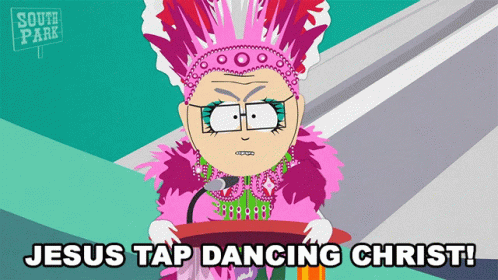I outright reject you attempt to place your morality on me. I will continue to enjoy Brer Rabbit and other American literature even if Walt Disney borrowed from the source to make a movie that you disapprove of. Can you tell me what is wrong with the story of Brer Rabbit and the briar patch without mentioning an 80-year-old movie?
Nothing about the story per se.
But try to be sensitive to the fact that most people who know that quote, did NOT learn it that way.
They learned it from that movie. And as I said, that movie is problematic for a number of reasons.
I don’t understand your point. Many of Shakespeare’s characters are immensely complex. Every time I read or watch Shakespeare, I see something new. Should Shakespeare not have created a flawed Jewish character? Shylock’s flaws and his Jewish background are used to show that victimizing people unfairly is wrong. I wouldn’t want Portia to be my judge, either. Does that make me anti-Christian?
You seriously don’t see the historical problem of that trope? People aren’t taking in the whole play when they use the term of the stereotype
So the answer is no, you can’t point out what is wrong with Brer Rabbit and the Briar Patch without mentioning an 80 year old movie. In effect, you are giving this 80 year old Disney movie some sort of Heckler’s Veto over classic American literature. I think that is misguided.
Just trying to help you understand why a lot of people might have issues with what you said.
Not saying you meant anything offensive by it. Obviously you weren’t aware of and didn’t understand the pop culture reference.
But try to be sensitive as to why some may find that saying offensive.
That’s why.
Look, I see flaws in all sorts of characters in The Merchant of Venice. I see flaws in virtually all of Shakespeare’s characters. Shakespeare did not make Shylock a uniquely flawed character. In fact, in The Merchant of Venice, his Christian characters are worse!
I use references to Shakespeare all the time. I guess I should find comfort in that I do not call unscrupulous people Shylocks. I call them charlatans instead. Thank goodness Moliere influenced my word choice instead of Shakespeare. But I will not criticize someone who makes a Shakespearean reference that runs afoul of your puritan sensibilities.
And we’ve reached the…

point of the conversation.
If you’re using the term Shylock to describe anyone other than the Shakespearean character, then you’re using it as an antisemitic slur. That’s it.
When is Shylock used that isn’t a reference to the Shakespearean character? I can’t think of any other Shylocks in real life or literature other than the Shakespearean character. The President’s quote found earlier in this thread clearly references the Shakespearean character in the context of an unscrupulous businessman.
Just because you haven’t heard it, doesn’t mean it’s not a slur. It’s not one of the more common anti-Semitic slurs, but I’ve heard it.
When Jewish people and groups are you telling you something is antisemitic, it probably is.
And if someone is wondering if this slur had been considered antisemitic in public before the recent case, it had.
No don’t you get it, your context doesn’t matter. Only his, and it’s for just an unscrupulous businessman. Nevermind, how the character was always described, used before as a slur, etc.
Is kind of like how I get to call my black friends, “N-Word Jim’s” sure they keep telling me that it’s wildly offensive to them and also slap me upside the head. But to me it’s just a brilliant piece of American literature, and describing a loyal friend. Therefore totally cool.
You obviously didn’t read or comprehend what I said here. It’s not about the reference.
Until I read this thread, I had no idea of the character, the word, the reference or the double meaning. I have heard of Shakespeare but confess to not having read all of his work.
Me neither. Didn’t even know the term. But won’t use it in the future, same with the briar patch.
My point is that, out of pure ignorance on my part, I might have used the term without knowing everything being posted here. I’m fairly certain that I haven’t.
Now that I know, there’s a difference.
That said, people use terms they don’t always know what others know. That’s the caveat I was trying to describe.
Today I was reading about actor Elisha Cook Jr. and how was called a gunsel in a movie with Humphrey Bogart, The Maltese Falcon, I think. A few people know it meant a subservient homosexual young boy. I doubt everyone who saw that movie knew that. I sure didn’t and I digress.
Yeah a mistake of ignorance is forgivable. We’ve all done it probably repeating something an adult said as youths.
But once you’re corrected there is no excuse, you’re at best a self-absorbed a-hole and at worst in this sense both a self-absorbed a-hole and an anti-Semite.
I have always thought the use of Shylock was referring to a loan shark.
BTW, the only Shakespeare I ever read was Macbeth because I had too in high school.
